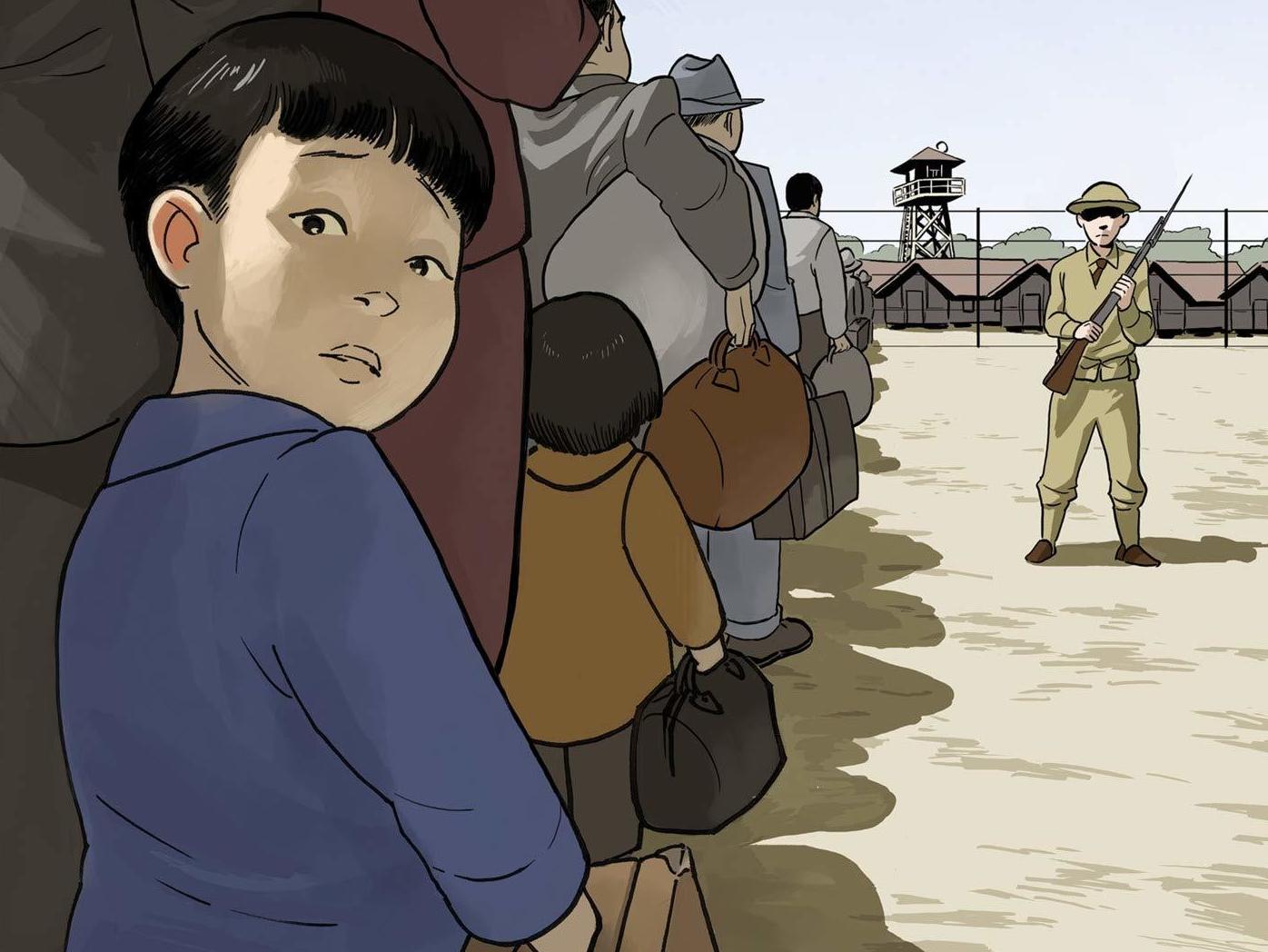
‘One Book One Community’ Reading at Ladue School District
This fall, our neighboring community, Ladue School District, kicked off a new “One Book One Community” book club for its students, alumni, families, and staff, to pursue learning about different cultures through reading. The first title they selected was They Called Us Enemy by George Takei, a graphic novel based on his own internment experiences with his family during WWII.
To further learn and understand this historical, albeit lesser-taught, event, several WashU faculty and students were invited as panel members to an online community discussion on November 18:
- Lori Watt, associate professor of history and global studies, gave a mini-lecture to provide more historical information about the Japanese internment camps, including a historical background about immigration to the United States starting in the late 19th century.
- Chris Eng, assistant professor of English, discussed any topics and themes covered in the book which still deeply relate to contemporary issues happening in the US today, providing references to famous court cases.
- Ron Sakai from the Japan-American Society of St. Louis and Robin Hattori, project manager in the School of Medicine, shared their stories about family members who experienced the internment camps.
- And finally, Gabi Senno, WashU undergraduate senior double majoring in American Culture Studies and Global Cultural Studies, added her family stories as a fourth-generation Japanese American in connection with her current research.
In between these talks, more than 70 attendees at the event were separated into smaller groups to further discuss with each of the panelists, followed by book club activities, which I also assisted to moderate and lead their discussion as a librarian.
As one of the organizers at Ladue Schools mentioned, their high school enjoys such a high reputation and considerable numbers of their students continue studying at higher educational institutions including WashU. It was a rare outreach opportunity for WashU faculty, students, and library staff to interact with community members to nurture mutual understanding through book club activities.